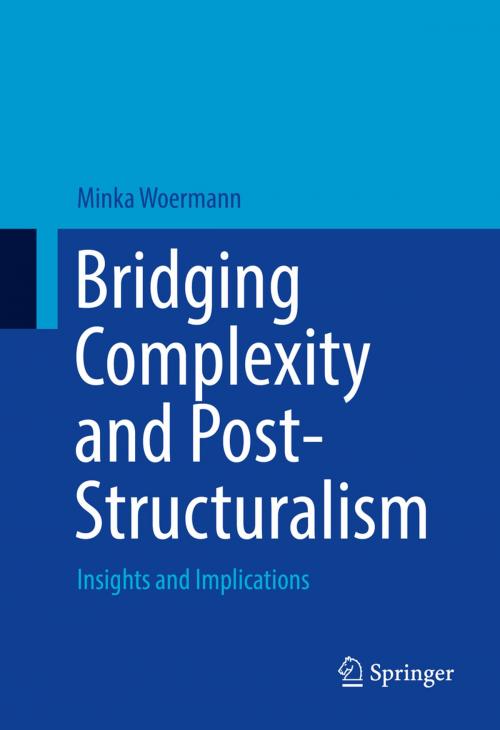Bridging Complexity and Post-Structuralism
Insights and Implications
Nonfiction, Science & Nature, Science, Other Sciences, System Theory, Religion & Spirituality, Philosophy, Ethics & Moral Philosophy| Author: | Minka Woermann | ISBN: | 9783319390475 |
| Publisher: | Springer International Publishing | Publication: | September 27, 2016 |
| Imprint: | Springer | Language: | English |
| Author: | Minka Woermann |
| ISBN: | 9783319390475 |
| Publisher: | Springer International Publishing |
| Publication: | September 27, 2016 |
| Imprint: | Springer |
| Language: | English |
This work addresses the topic of philosophical complexity, which shares certain assumptions with scientific complexity, cybernetics, and General Systems Theory, but which is also developing as a subject field in its own right.
Specifically, the post-structural reading of philosophical complexity that was pioneered by Paul Cilliers is further developed in this study. To this end, the ideas of a number of contemporary French post-structural theorists and their predecessors - including Derrida, Nancy, Bataille, Levinas, Foucault, Saussure, Nietzsche, Heidegger, and Hegel - are introduced. The implications that their various insights hold for our understanding of complex human systems are teased out at the hand of the themes of economy, (social) ontology, subjectivity, epistemology, and ethics. The analyses are also illuminated at the hand of the problematic of the foreigner and the related challenges of showing hospitality to foreigners.
The study presents a sophisticated account of both philosophical complexity and philosophies of difference. By relating these subject fields, the study also extends our understanding of philosophical complexity, and offers an original characterisation of the aforementioned philosophers as complex thinkers.
This work addresses the topic of philosophical complexity, which shares certain assumptions with scientific complexity, cybernetics, and General Systems Theory, but which is also developing as a subject field in its own right.
Specifically, the post-structural reading of philosophical complexity that was pioneered by Paul Cilliers is further developed in this study. To this end, the ideas of a number of contemporary French post-structural theorists and their predecessors - including Derrida, Nancy, Bataille, Levinas, Foucault, Saussure, Nietzsche, Heidegger, and Hegel - are introduced. The implications that their various insights hold for our understanding of complex human systems are teased out at the hand of the themes of economy, (social) ontology, subjectivity, epistemology, and ethics. The analyses are also illuminated at the hand of the problematic of the foreigner and the related challenges of showing hospitality to foreigners.
The study presents a sophisticated account of both philosophical complexity and philosophies of difference. By relating these subject fields, the study also extends our understanding of philosophical complexity, and offers an original characterisation of the aforementioned philosophers as complex thinkers.















